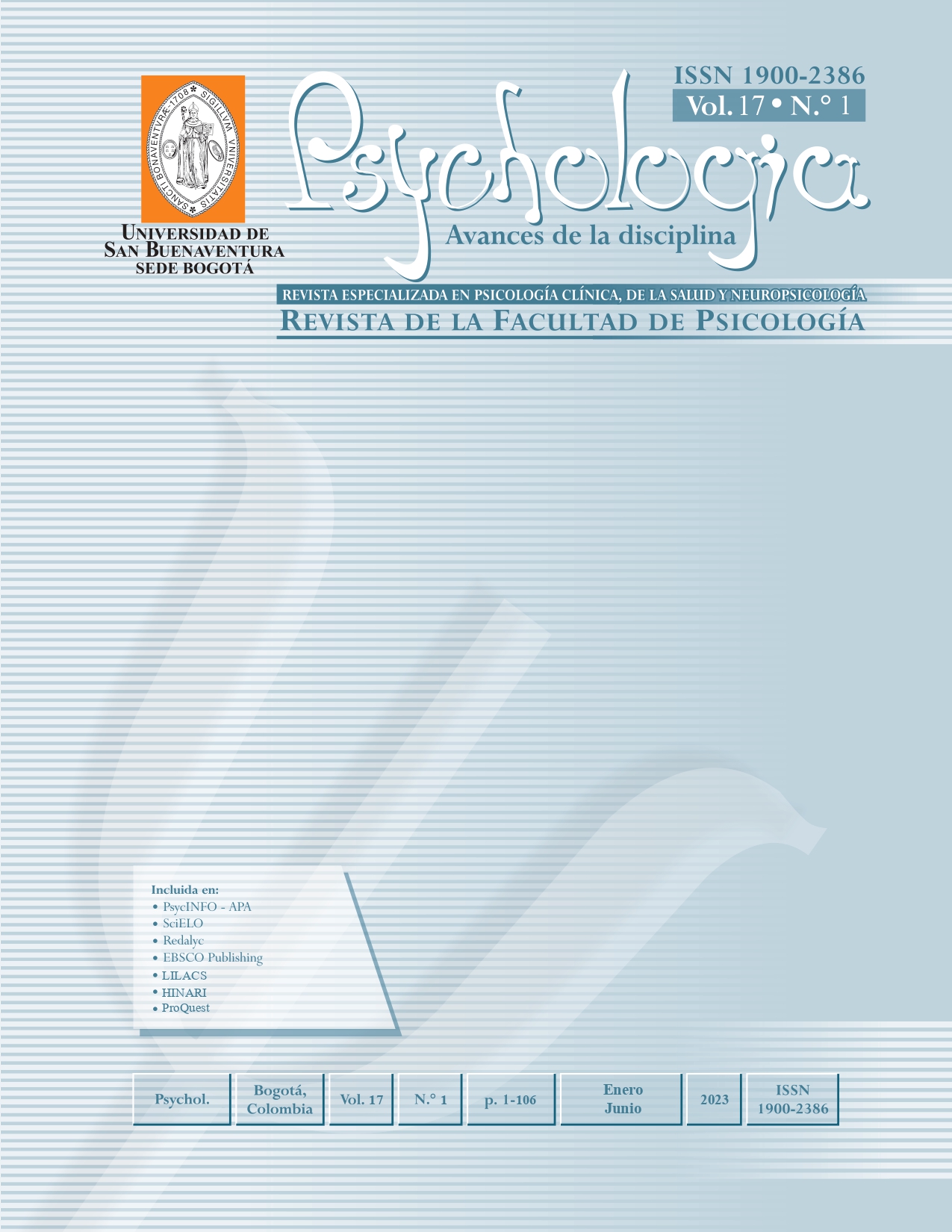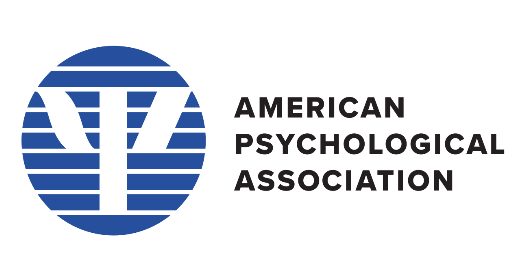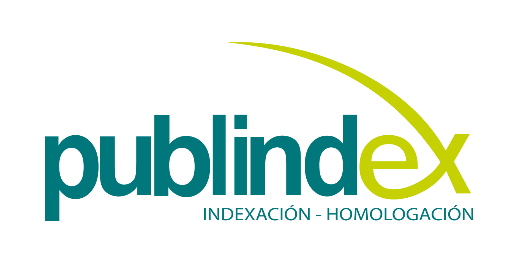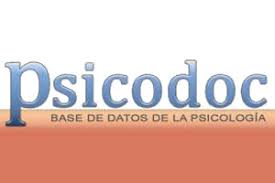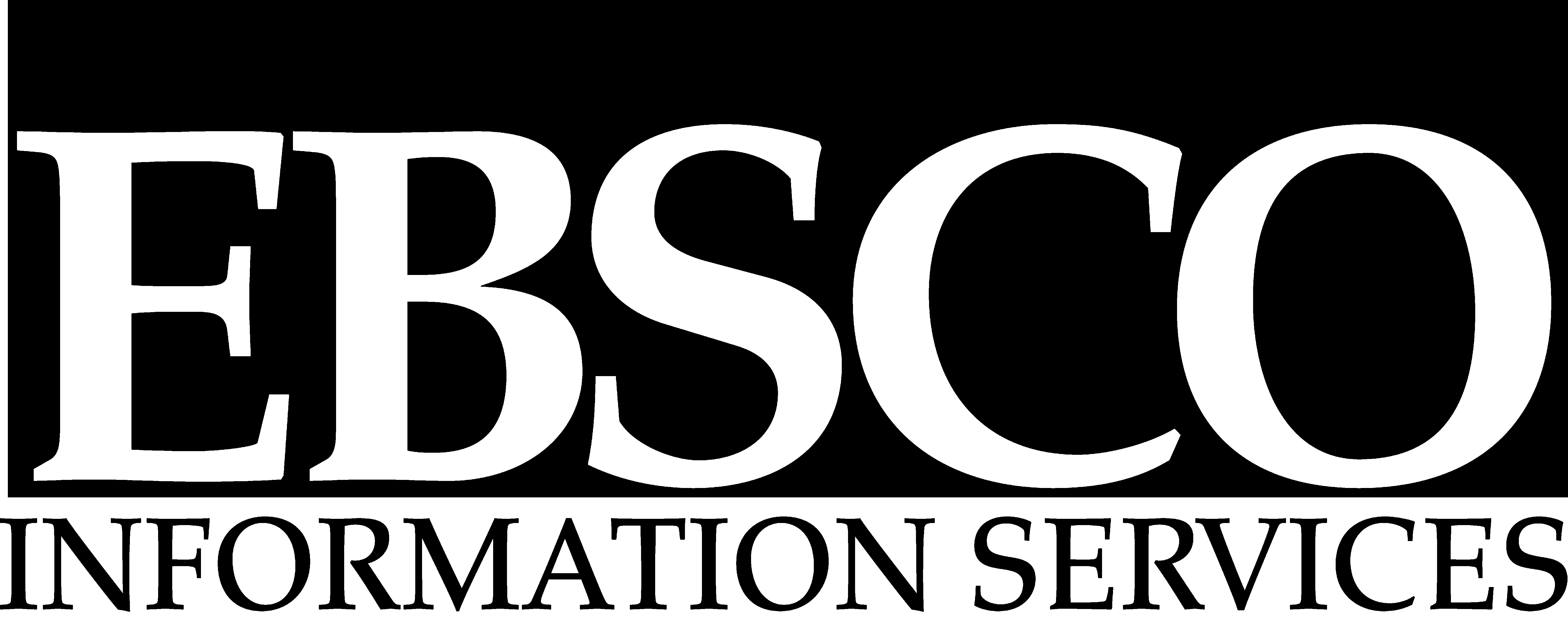This journal provides open, immediate access to its contents, based on the principle that offering the public free access to research helps to promote a higher global exchange of knowledge.
As such, all journal articles are published under a Creative Commons Attribution-NonCommercial-ShareAlike 4.0 International License (CC BY-NC-SA), by which commercial use of the original work or its possible derived works is not allowed, and the distribution thereof must be done with the same license elements regulating the original work.
http://creativecommons.org/licenses/by-nc-sa/4.0/
Abstract
Purpose: To identify individual factors affecting entities associated with the occurrence of corrupt conduct.
Design/methodology/approach: This is a qualitative study, and information was collected through interviews. It adopted a systematic design, characterized by open, axial, and selective coding. Eleven interviews were conducted with legal professionals specializing in the investigation of financial crimes, who have identified the factors involved in corruption and fraud. The information was analyzed using the ATLAS TI 6.5 software.
Findings: The results showed that lack of control was the most important factor that led to corruption in entities, while ambition, greed, and acceptance of corrupt conduct were the most common factors in the individual sphere. Identifying the factors associated with corruption is relevant for proposing preventive measures.
References
Andrés, J. M. (2012). Ethics, corruption and the paradigm of homo economicus. http://studylib.es/doc/5126610/%C3%A9tica--corrupci%C3%B3n-y-el-paradigma-del--homo-economicus-
Argandoña, A. (2007). La corrupción y las empresas. Recuperado de: http://www. iese. edu/research/pdfs/OP-07-21. pdf.
Arredondo, H. (2019). Los fundamentos morales y económicos de la corrupción [The moral and economic foundations of corruption]. Panorama Económico, 14(28), 111–140. https://doi.org/10.29201/peipn.v14i28.44
Arroyabe, L., & Guerrero, A. (2010). Estudio de siete casos de personas condenadas por delitos contra la administración pública en Colombia, entre el 2009 y el 2010, desde la perspectiva criminológica [A study of seven cases of persons convicted of crimes against public administration in Colombia between 2009 and 2010 from a criminological perspective]. Revista Criminalidad, 52(2), 77–97. http://www.scielo.org.co/scielo.php?script=sci_arttext&pid=S1794-31082010000200005
Asociación de Examinadores Certificados de Fraude–ACFE. (2014). Report to the nations on occupational fraud and abuse. https://www.acfe.com/-/media/files/acfe/pdfs/2014-report-to-nations.ashx
Bautista, O. (2015). Ética Pública frente a Corrupción. Instrumentos éticos de aplicación práctica [Public Ethics in the face of corruption. Ethical tools for practical application]. Public Administration Office of the State of Mexico à C. http://iapem.mx/Libros/ETICA-Y-CORRUPCION.pdf.
Berciano, J. (2010). La importancia y la necesidad de proteger la información sensible. Red seguridad. 49, 28-30. https://www.redseguridad.com/especialidades-tic/proteccion-de-datos/la-importancia-y-la-necesidad-de-proteger-la-informacion-sensible_20120229.html
Betancourt, D., & Garcia, S. R. (2015). La impulsividad y la búsqueda de sensaciones como predictores de la conducta antisocial en adolescentes [Impulsivity and sensation seeking as predictors of antisocial behavior in adolescents]. Enseñanza e Investigación en Psicología, 20(3), 309–315. http://www.redalyc.org/articulo.oa?id=29242800008
Bonnett, M. (2018). Regulación de la información confidencial en el país. Asuntos Legales. Recuperado de: https://www.asuntoslegales. com.co/analisis/monica-bonnett-529291/regulacion-de-la-informacion-confidencial-en-elpais-2758941
Buell, S. (2014) “White Collar” Crimes. En Dubber, M. & Hornle, T. (Ed.), Oxford Handbook of Criminal Law (pp. 837-861). Oxford, Estados Unidos: Oxford University Press.
Calleja, L. (2014). Factores explicativos del fraude empresarial y medidas adoptadas: Caso Español. [Explanatory factors of corporate fraud and measures adopted: Spanish case] [bachelor thesis]. Universidad del País Vasco, School of Economic and Business Sciences.
https://addi.e.,hu.es/bitstream/handle/10810/14550/TFG_Calleja.pdf;jsessionid=0F1EE2B338D5DCD2B2BD46614BE1C266?sequence=1.
Cepeda, F. (2017). Corrupción: Gubernamental [Government corruption]. Política, empresarial. Cuellar Editores. S.A.S. Publishing.
Coello-Argüello, M. C. (2017). Subdivisión de contratos dentro de los procedimientos de contratación pública en Ecuador y su implicación penal [Subdivision of contracts within public procurement procedures in Ecuador and their criminal implication] [Bachelor’s thesis]. UCE, Quito. http://www.dspace.uce.edu.ec/handle/25000/13001
Dimant, E., & Tosato, G. (2018). Causes and effects of corruption: What has past decade’s empirical research taught us? A survey. Journal of Economic Surveys, 32(2), 335–356. https://doi.org/10.1111/joes.12198
Duffield, G., & Grabosky, P. (2001). The psychology of fraud. Australian Institute of Criminology. https://aic.gov.au/publications/tandi/tandi199.
Elvira, O. & Amat, O. (2007). Manipulación contable: “tipología y prácticas utilizadas”. Revista Internacional Legis de Contabilidad y Auditoría, 31(1), 11-44. http://www.oriolamat.cat/wordpress/wp-content/uploads/2017/04/Manipulaci%C3%B3n-contable-tipolog%C3%ADa-y-pr%C3%A1cticas-utilizadas-Revista-Internacional-Legis-de-Contabilidad-Auditor%C3%ADa-2007.pdf
EY. (2018). Integrity in the spotlight, The future of compliance. 15th Global Fraud Survey, Colombia. EYGM Limited.
Fernández, R. L. (2006). Aspectos psicológicos de la corrupción. En: Sierra, J.C., Jiménez, E. y Buela, G. (Coords.). Psicología forense. Manual de técnicas y aplicaciones. Madrid: Editorial Biblioteca Nueva Madrid
Fisher, K. (2015). The psychology of fraud: What motivates fraudsters to commit crime? Texas Woman’s University. https://papers.ssrn.com/sol3/papers.cfm?abstract_id=2596825
Galvis-Castañeda, I. (2008). Análisis conductual forense en un caso de delito financiero [Forensic behavioral analysis in a financial crime case]. cuad. contab. / Bogotá, Colombia, 2(25), 465–486. http://revistas.javeriana.edu.co/index.php/cuacont/article/view/3233/2457
Garrido, V. (2005). Manual de intervención educativa en readaptación social [Manual of educational intervention in social readaptation]. Tirant to Blanch.
Godoy, O. (2019). Consideraciones generales sobre la corrupción y su prevención [General considerations on corruption and its prevention]. Inicio, 18(1–2), 15–30.
Hare, R. D. (1991). The Hare Psychopathy CkecklistRevised. Toronto: Multi-Health Systems
Henao, J., & Isaza, C. (2018). Corrupción en Colombia [Corruption in Colombia]. Universidad Externado de Colombia.
Hernández Sampieri, R., Fernández Collado, C., & Baptista Lucio, P. (2010). Metodología de la investigación [Editorial MC Graw-Hill Interamericana, México].
Jiménez, P., & Mojica, C. (2010). Principales Causas de la Corrupción en la Administración de Justicia Colombiana 2002-2008-Estrategias o alternativas de solución [Main causes of corruption in the Colombian administration of justice from 2002 to 2008—Solution strategies or alternatives]. Universidad Libre. https://repository.unilibre.edu.co/bitstream/handle/10901/5705/JimenezRodriguezPabloDavid2010.pdf?sequence=1
Julián, R. M., & Bonavía, T. (2017). Aproximaciones psicosociales a la corrupción: Una revisión teórica [Psychosocial approaches to corruption: A theoretical review]. Revista Colombiana de Psicología, 26(2), 231–243. https://doi.org/10.15446/rcp.v26n2.59353
KPMG. (2013). Global profiles of the fraudster. White-collar crime—Present and future. KPMG International. http://portal.protecturi.org/wp-content/uploads/2013/12/Perfiles-globales-defraudador.pdf.
KPMG. (2016). Global profiles of the fraudster: Technology enables and weak controls fuel the fraud. KPMG International. https://assets.kpmg/content/dam/kpmg/pdf/2016/05/profiles-of-the-fraudster.pdf
KPMG. (2016). Los controles anti-fraude continúan siendo insuficientes en la mayoría de las organizaciones [Anti-fraud controls continue to be insufficient in most organizations]. KPMG International. https://home.kpmg/co/es/home/media/Notas%20de%20prensa/2018/08/fraude-en-las-empresas.html
KPMG. (2019). KPMG MGZN first edition. Growing Pains. https://home.kpmg/co/es/home/insights/2019/02/kpmg-mgzn-febrero-2019.html
Larrea, C., & Greene, N. (2015). De la lucha contra la pobreza a la superación de la codicia. Ecuador: Inequidad social y redistribución del ingreso [From fighting poverty to overcoming greed. Ecuador: social inequity and income redistribution]. In M. Belén & C. López, La osadía de lo nuevo. Alternativas de política económica [The audacity of what’s new. Economic policy alternatives]. Ediciones Abya-Yala (pp. 11–59). https://rosaluxspba.org/wp-content/uploads/2015/10/La-osad%C3%ADa-de-lo-nuevopdf.pdf.
León, M., E., Folino, J. O., Neumann, C., & Hare, D. (2013). Aproximación diagnóstica de psicopatía mediante instrumento autoinformado [Diagnostic approach to psychopathy using a self-report instrument]. Revista Criminalidad, 55(3), 251–264. http://www.scielo.org.co/pdf/crim/v55n3/v55n3a04.pdf
Lokanan, M. E. (2015). Challenges to the fraud triangle: Questions on its usefulness. Accounting Forum, 39(3), 201–224. https://doi.org/10.1016/j.accfor.2015.05.002
López, M., & Núñez, M. (2008). Psicopatía versus trastorno antisocial de la personalidad [Psychopathy versus antisocial personality disorder]. Revista Española de Investigación Criminológica, 1(23), 1–17. http://psicopedia.org/wp-content/uploads/2013/12/Trastorno-de-Personalidad-Antisocial.pdf
Molina, H. (2015). El fraude en la información empresarial en el marco de las relaciones financieras [Corporate information fraud in the context of financial relationships]. Revista de Fomento Social, 276, 395–419. http://www.scielo.org.co/scielo.php?script=sci_abstract&pid=S1794-31082015000300004&lng=es&nrm=iso
Ospina, A. F. (2016). Instrumentos de la lucha contra la corrupción en Colombia: De la última ratio a la ausencia de razón [Elements in the fight against corruption in Colombia: From the last ratio to the absence of reason]. A&C-revista de directo administrativo and constitucional, 16(63), 67–91. http://dx.doi.org/10.21056/aec.v16i63.43
Ospina, O. L. (2019). Fraude en las organizaciones, factores que influyen para el hecho [Fraud in the organizations, factors influencing crime]. Universidad Militar Nueva Granada.
Pérez, M. & Gándara, L. (2001). Los altos ejecutivos de las corporaciones transnacionales: Un esbozo analítico para su estudio. El Colegio de México, 19(2), 419-438. https://doi.org/10.24201/es.2001v19n56.468
Poveda, J. E. G., Tituaña, S. P. P., & Franco, P. Y. V. (2016). Importancia del control interno en el Sector Público [The importance of internal control in the public sector]. Revista Publicando, 3(8), 487–502. https://revistapublicando.org/revista/index.php/crv/article/view/316
Quijada, D., & Muñoz, C. (2004). Estudio descriptivo de las características de personalidad en sujetos inculpados por delitos económicos. [Una aproximación psico-forense [Descriptive study of personality traits in individuals accused of economic crimes. A forensic psychological approach]. Santiago de Chile. http://diegoquijada.cl/doc/Delitos_economicos.pdf.
Reyes Ramírez, E. M. (2017). La corrupción en el Estado Colombiano [Corruption in the Colombian State]. Dictamen Libre, 21(21), 29–36. https://doi.org/10.18041/2619-4244/dl.21.3140
Román-Espinal, Z. (2011). Review of “Ética para corruptos” [Ethics for the Corrupt] by Oscar Diego Bautista. Espacios Públicos, 14(30), 247–249. http://www.redalyc.org/articulo.oa?id=67618934016
Romero, J. M., Moreno, J. M., Blázquez, M., & García-Baamonde, M. E. (2013). Psicópatas integrados/subclínicos en las relaciones de pareja: Perfil, maltrato psicológico y factores de riesgo [Integrated/subclinical psychopaths in intimate partner relationships: Profile, psychological abuse and risk factors]. Papeles del Psicólogo, 34(1), 32–48. http://www.redalyc.org/articulo.oa?id=77825706004
Salgado, C. (2004). El flagelo de la corrupción: Conceptualizaciones teóricas y altenativas de solución [The scourge of corruption: Theoretical conceptualizations and alternative solutions]. Liberabit. Revista de Psicología, 10, 27–40. http://www.redalyc.org/pdf/686/68601005.pdf
Soriano, R. (2011). La corrupción política: Tipos, causas y remedios [Political corruption: Types, causes and remedies]. In Anales de la Cátedra Francisco Suárez, 45, 383–402.
Strauss, A., &Corbin, J. (2002). Bases de la investigación cualitativa. Técnicas y procedimientos para desarrollar la teoría fundamentada. Editorial Universidad de Antioquia.
Torres, A. (2009). Los valores morales en la personalidad [Moral values in personality]. Revista Médica Electrónica, 31(2). http://www.revmedicaelectronica.sld.cu/index.php/rme/article/view/604/html
Transparency International. (2012). Corruption Perceptions Index 2012. https://transparenciacolombia.org.co/Documentos/Publicaciones/transparencia/2012_CPI_brochure_EN.pdf
Transparency International. (2021). Corruption Perceptions Index 2012. https://transparenciacolombia.org.co/wp-content/uploads/indice-de-percepcion-de-corrupcion-2020-1.pdf
Trasparencia por Colombia (2017). Reflexiones sobre las causas de la corrupción y los medios para enfrentarla [Reflections on the causes of corruption and how to deal with it]. https://transparenciacolombia.org.co/2019/01/22/reflexiones-sobre-las-causas-de-la-corrupcion-y-los-medios-para-enfrentarla/
Ulloa, A. R. (2018). Investigación sobre el acoso laboral en las empresas de la ciudad de Quito. Revista Publicando, 5(14), 81-89. https://dialnet.unirioja.es/servlet/articulo?codigo=7055596
Valencia Casallas, O. L. (2020). Delitos de corrupción en Colombia: Variables socioculturales, institucionales y criminológicas. Diversitas, 16(1), 181–199. https://doi.org/10.15332/22563067.5550
Van Dijk, T. (2006). Discurso y manipulación: Discusión teórica y algunas aplicaciones [Discourse and manipulation: Theoretical discussion and applications]. Revista signos, 39(60), 49–74. http://www.discursos.org/oldarticles/Discurso%20y%20Manipulacion.pdf
Zamora, W. M. M., Ponce, T. Y. G., Chávez, M. I. D., & Cedeño, I. M. B. (2018). El Control interno y su influencia en la gestión administrativa del Sector Público [Internal control and its influence on the administrative management of the public sector]. Dominio de las Ciencias, 4(4), 206–240. https://dialnet.unirioja.es/servlet/articulo?codigo=6656251
Zapatero, L., & Martín, A. (2006). Fraude y corrupción en el derecho penal económico europeo: Eurodelitos de corrupción y fraude (no. 3) [Fraud and corruption in European economic criminal law: Eurocorruption and fraud offenses (no. 3)]. Universidad de Castilla-La Mancha. https://books.google.com.co/books?id=bc67l74K7rgC&pg=PA490&lpg=PA490&dq=fraude+por+reciprocidad+de+favores&source=bl&ots=e1BfVd0UCF&sig=WRGiu0tMjUZ95mnqRfgasPP-60k&hl=es&sa=X&ved=0ahUKEwjq35C86azXAhXGRyYKHfCGCSsQ6AEIJDAA#v=onepage&q=fraude%20por%20reciprocidad%20de%20favores&f=false.
Zuleta, P. (2015). La corrupción su historia y sus consecuencias en Colombia [Corruption: Its history and consequences in Colombia] [Specialization In Sanction Law Thesis]. Universidad Militar Nueva Granada.

